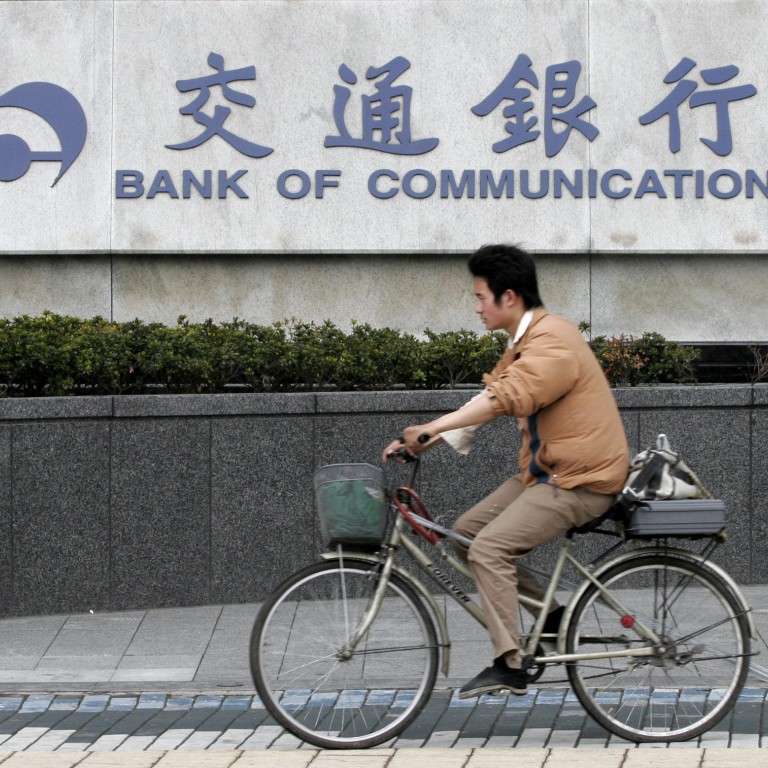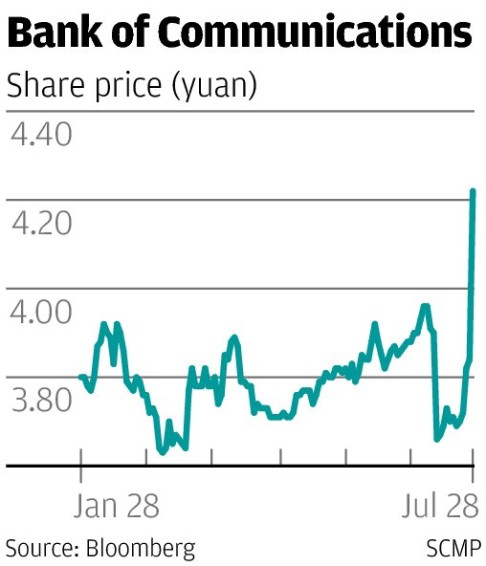
Bocom in reform push for increased private ownership
Lender's plan for shift in shareholding structure triggers rally in mainland banking stocks
Bank of Communications is "actively researching" reforms that will allow the state lender to take on increased private ownership, it said yesterday.
Shares of the mainland's fifth-largest bank rose nearly 10 per cent in Shanghai yesterday and other state lenders outperformed the market as talk of an imminent shift in shareholding structure in the banking sector intensified before the announcement, made in a filing to the Shanghai exchange.
Bocom ownership is already the most diversified of the mainland's top five banks.
In 2005, HSBC took a 19.9 per cent stake in Bocom, making it the first big state bank to allow significant foreign investment.
Hong Kong Interbank Clearing owns 20 per cent and six other companies own small stakes, leaving the Ministry of Finance with just 26.5 per cent ownership.

Deeping reform would help the bank strengthen its risk management, it said in the filing.
The mainland's biggest banks rallied on prospects of reform in the sector.
China Construction Bank closed up nearly 4 per cent, outperforming the Shanghai Composite Index, which gained 2.4 per cent. Agricultural Bank of China rose 3.3 per cent and Bank of China added 3 per cent.
Investors in Hong Kong were less responsive to the rumour. Bocom's shares rose 6.2 per cent.
"Usually A shares are more driven by sentiment and events while H-share investors are more fundamental-based," Qi said.
More private ownership in Bocom would be yet another step in the "mixed shareholder" reform that Beijing initiated at some of the most closely guarded state assets early this year.
In February, the nation's biggest refiner, Sinopec, said it would sell up to 30 per cent of its oil retail business to outside investors. However, the finer details of how private shareholders would be introduced have not been disclosed.
In April, Citic Pacific agreed to buy its state-owned parent Citic Group in a deal valued at 227 billion yuan (HK$284 billion). The initial announcement sent Citic Pacific's share price soaring by about 30 per cent.
Another government sell-off raises questions over whether HSBC would increase its stake in Bocom if given a chance. HSBC declined to comment on the topic, saying only that Bocom "continues to be a key strategic partner of HSBC" on the mainland.
